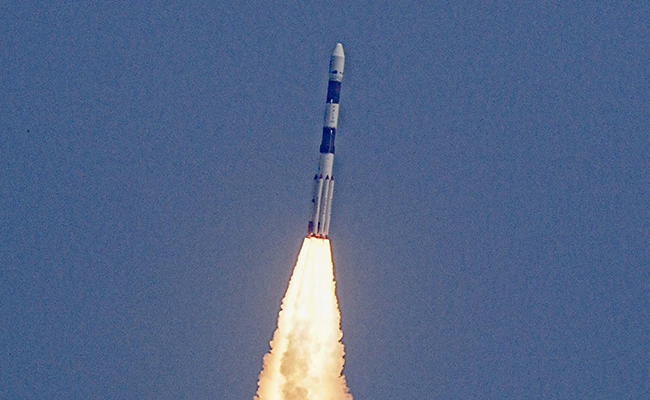- Views: 1K
- Replies: 10
)
India's space ambitions have soared to new heights with the formalization of the New Generation Launch Vehicle (NGLV) project at Sriharikota.
This ambitious endeavor marks a significant step towards an independent Indian space station, lunar exploration missions, and a new era of self-reliance and innovation within India's space program.
The NGLV promises to revolutionize India's launch capabilities with its innovative design, focusing on green fuel combinations, increased payload capacity, and a heavy emphasis on reusability.
Environmentally Conscious Propulsion
A hallmark of the NGLV is its commitment to environmentally friendly propulsion.The use of green fuel combinations such as methane-liquid oxygen or kerosene-liquid oxygen will enhance the rocket's efficiency and performance while significantly reducing carbon emissions.
Unprecedented Payload Capacity and the Future of Space Exploration
With a projected payload capacity of up to 10 tonnes to Geostationary Transfer Orbit (GTO), the NGLV dramatically outperforms India's current workhorse, the LVM-3, with more than double the capability.This enhanced capacity will unlock new possibilities for India, including launching larger satellites, conducting ambitious interplanetary missions, and realizing long-held space exploration aspirations.
Reusability: The Key to Affordable Launches
Perhaps the most transformative aspect of the NGLV project is the focus on reusability. Isro aims to make significant strides in reducing the traditionally high cost of space access by developing a three-stage launch vehicle with reusable elements.This will minimize the need to manufacture entirely new components for each launch. Early projections suggest that the reusable NGLV could achieve a remarkably low launch cost of approximately $1,900 per kilogram to Low Earth Orbit (LEO), a significant reduction compared to traditional expendable launch systems.
Strategic Implications and National Ambitions
The development of the NGLV carries immense strategic importance for India.A self-built space station and lunar exploration programs will firmly establish India's status as a major spacefaring nation, expanding its influence on the global stage.
Furthermore, the NGLV project will stimulate innovation in the aerospace sector, enhance India's domestic capabilities, and contribute to economic growth within the rapidly expanding space industry.
India's commitment to green propulsion in the NGLV project also reinforces its dedication to sustainable development and environmental responsibility.


